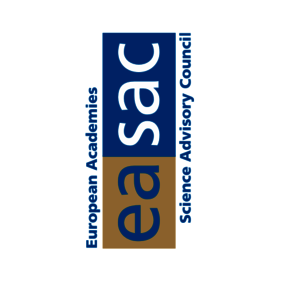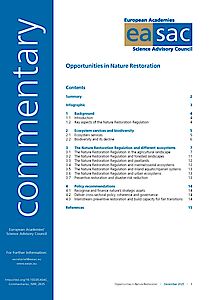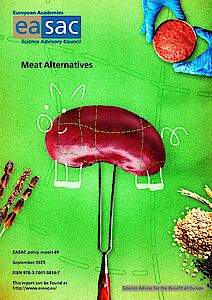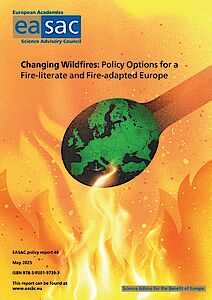Publications
Addressing the Challenges of Climate Change: an aide memoire for policy makers
The European Academies' Science Advisory Council (EASAC), which is formed by the National Science Academies of the European Union (EU) Member States, first issued this statement in December last year, urging world leaders, meeting in Durban, to press ahead with the process of international agreement on an effective response to climate change.
EASAC noted the 2009 agreement to limit further global warming to 2°C but that, despite calls for reduction in greenhouse gases, emissions had risen to a record level in 2010, and by a higher margin than had been expected. This year, the International Energy Agency is again reporting a record year and its Chief Economist is quoted as saying that this new data provide further evidence that the door to a 2°C trajectory is about to close.
This statement is now reissued to remind world leaders meeting in Doha that the issue remains urgent, that there is still time, but that action is needed now on the measures that will ensure global warming remains within the 2°C limit.
The science of climate change reported by the Intergovernmental Panel on Climate Change (IPCC) Fourth Assessment (2007) has been thoroughly evaluated by numerous national academies including the Royal Society, Royal Swedish Academy of Sciences, National Research Council of the National Academies of the USA, Institut de France, Académie des Sciences, and by international bodies including the InterAcademy Council (IAC) and InterAcademy Medical Panel (IAMP). Advances in science and technology have increased our knowledge of how to mitigate climate change, uncertainties in the scientific analysis have been identified and are being addressed, co-benefits of mitigation to health have been revealed, and new business opportunities have been found. EASAC remains concerned, however, that turning this substantial evidence base into an international policy response, notwithstanding the uncertainties, has so far failed to match the full magnitude and urgency of the problem.
back to overview
































